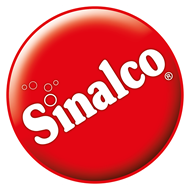Philippines' Legacy Coffee
Photo by Andrew Neel from Pexels
I love to drink coffee but I'm not a coffee addict. For practical reason, I drink it to wake me up in the morning. When I don't get to drink my first cup of coffee in the morning, I will feel a bit sluggish for the rest of the day. It's as if something is missing.
I remember that I started drinking coffee when I was in grade 9 (3rd year high school of the old system). It was the 70's and all the fourth year high schoolers are required to attend a weekly citizens' army training. Back then I wanted to be an officer because you get to wear a rank and a shiny saber so I signed up as a candidate officer which required one year training.
Part of the candidate officer's training required me to wake up early every Saturday morning. I had to be at the school ground before 5:00 a.m. because we are required to do physical training. The training included jogging for several kilometers outside the school and upon returning, we had to do military-style calisthenics.
Therefore, I needed to leave the house at 3:00 a.m. to reach the assembly area before 5:00 a.m. so that I won't do extra push-ups. Coffee was my life saver. Though it was instant coffee but it did the trick. On one of those Saturday mornings, I mistook a container of monosodium glutamate (MSG) for sugar and placed a spoonful in my coffee. My salivary glands produced a gush of saliva inside my mouth as a reaction. I washed the MSG with water and sugar. That incident was traumatic but it didn't end my love for coffee.
For most of my adult life, I drank instant coffee. It has served its purpose of perking me up every morning. But lately, I have became a bit of a coffee connoisseur, because I started drinking brewed coffee. Thanks to my daughter who gave me a coffee grinder and brewer in one, I get to try different types of coffee beans. I enjoyed drinking the Arabica, the Robusta, and other coffee beans. Preparing brewed coffee became a daily ritual.
I also had a stash of ground coffee which would last me for a month. Thanks to my daughter who gave it to me and asked earlier if I like the local barako coffee. I obviously said yes and I started brewing it. I began to appreciate its dark, strong flavor as I sip it from my mug every morning. The drinking experience is distinct from other coffee variant.
Previously, I thought the local barako coffee was too strong for my taste, so I didn't purposely buy one. Maybe, because of my advancing age and being cooped up inside the house because of the pandemic made me appreciate the local barako coffee over other coffee beans. Drinking it evoked a sense of satisfaction that offered both the deep rich flavor and the perk that you get from coffee.
I googled the barako coffee and learned that it was grown in Batangas. It is from the Coffee Liberia variety. The term barako in Filipino is associated with masculinity. Thus one would easily conclude that it is a strong coffee. The coffee was introduced to the Philippines in 1740 by Spanish Friars. It was originally planted in the lowlands of Lipa, Batangas. From there it spread to nearby areas.
In the 1880s, it was premium export item of the Philippines to the United States and Europe and commanded a good price. However, in 1889, the coffee industry in the Philippines was devastated by coffee rust that decimated the coffee trees in the archipelago. Only a few seedlings were left. When coffee exports made a comeback, the barako was unable to make a comeback.
Lately, I've noticed that the ground barako coffee is already sold in supermarkets in half-kilo and one kilo packs. It's making its way back in the local scene. Which is why, I was able to get a pack compliments of my daughter. Knowing its history makes my drinking coffee more satisfying. I would say that the local barako coffee or kapeng barako is Philippines' Legacy Coffee.




Comments
Post a Comment